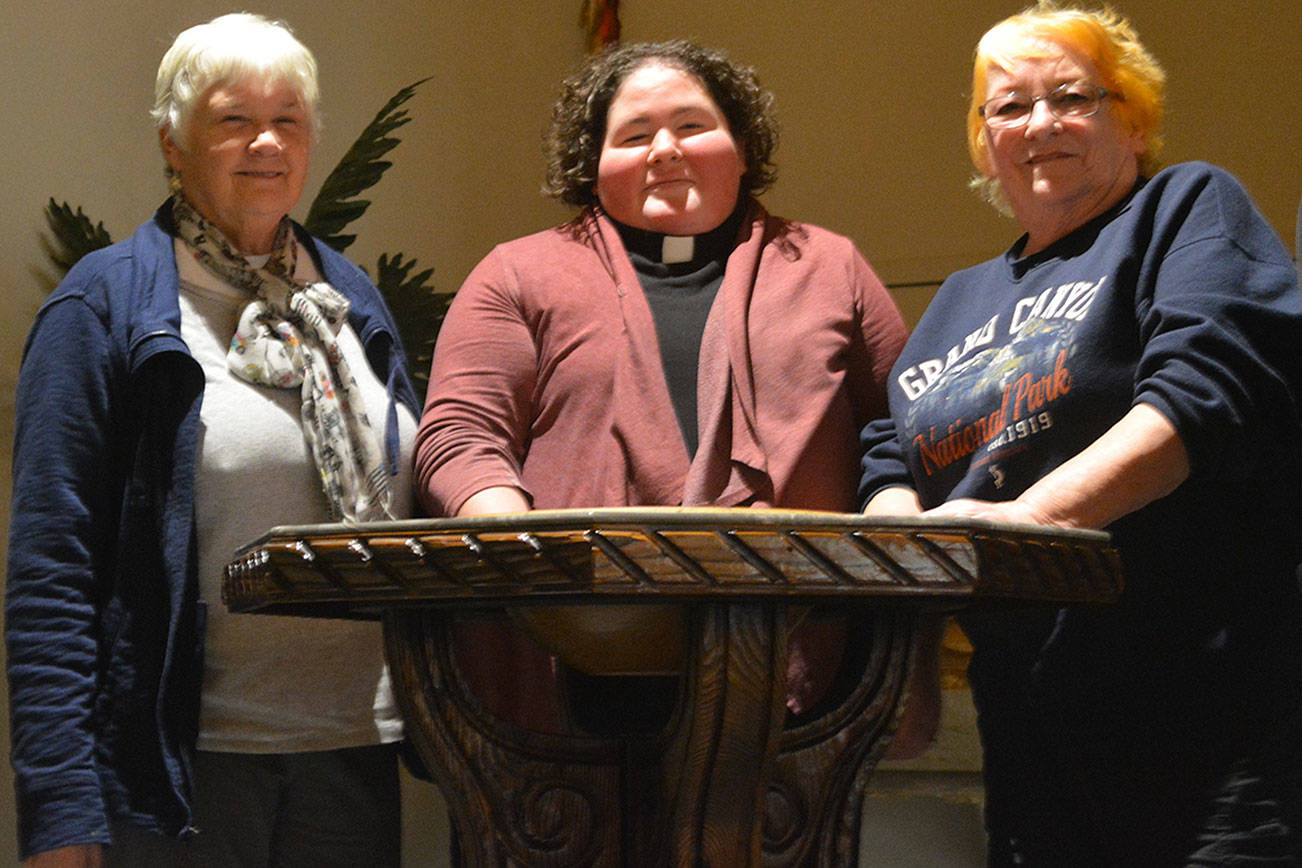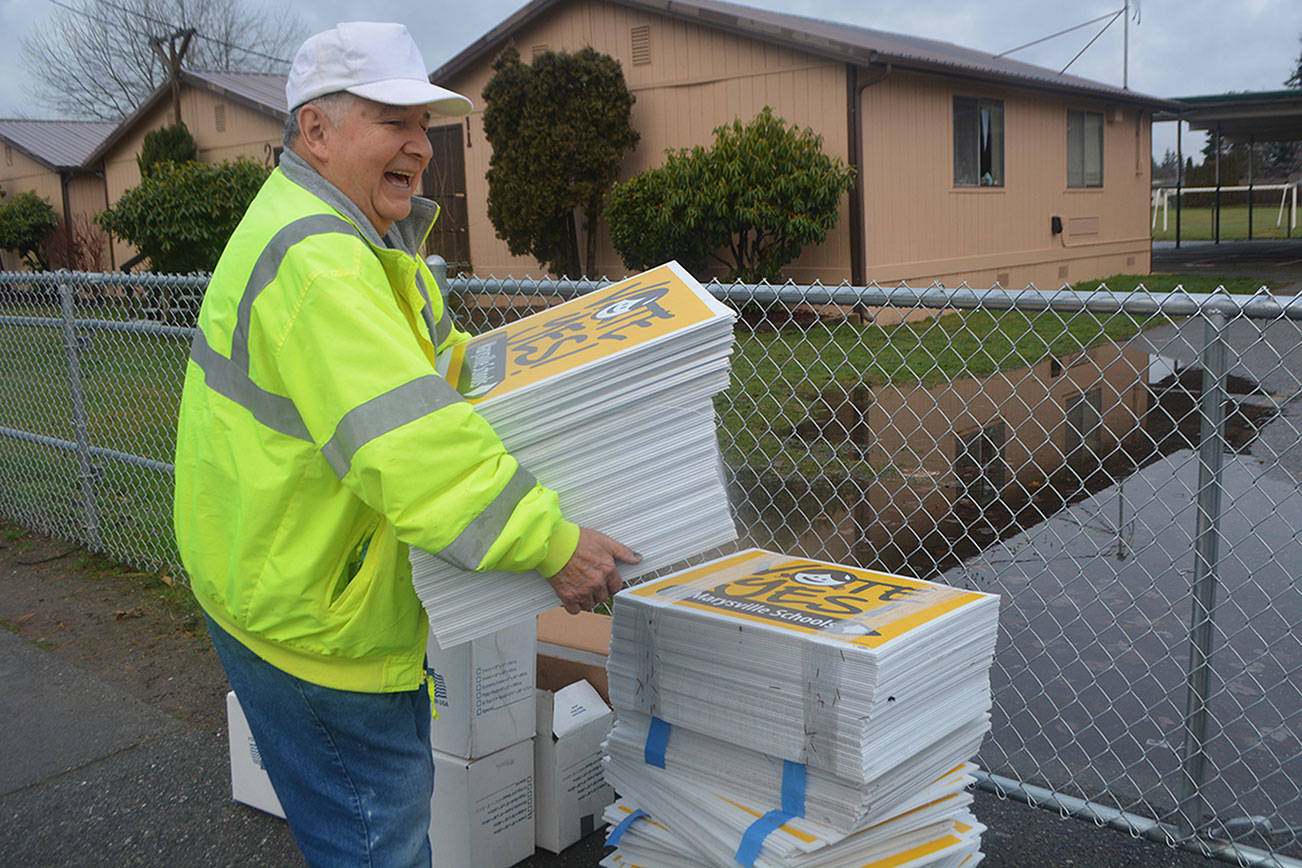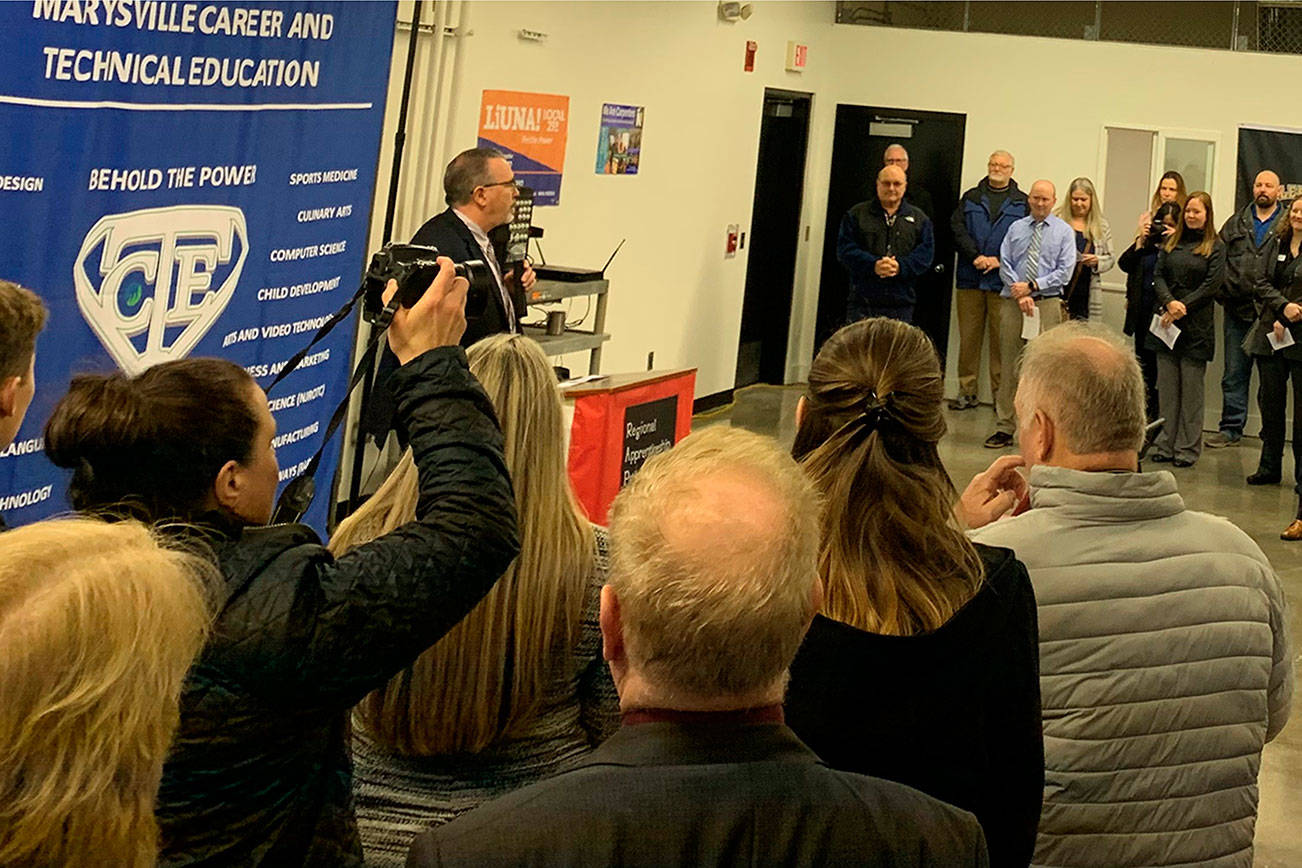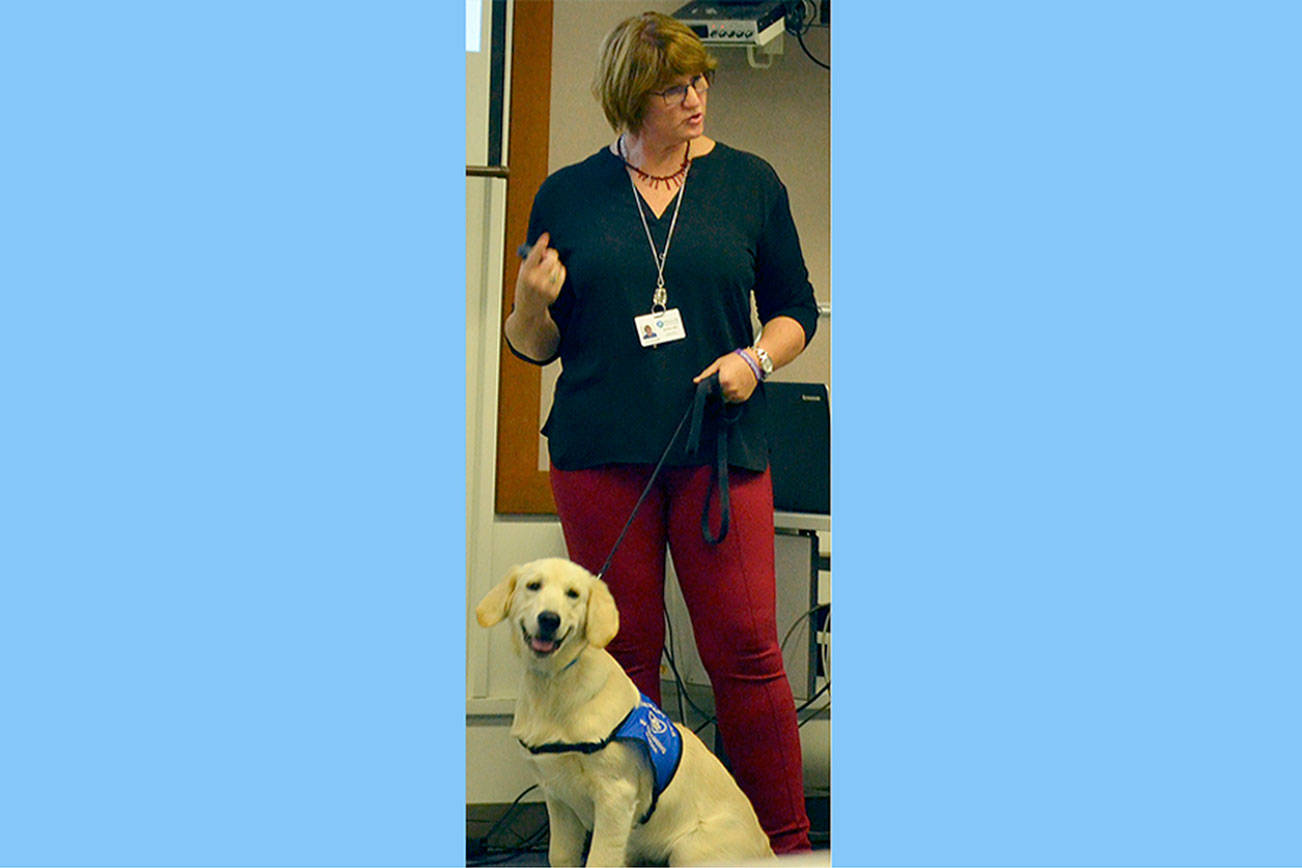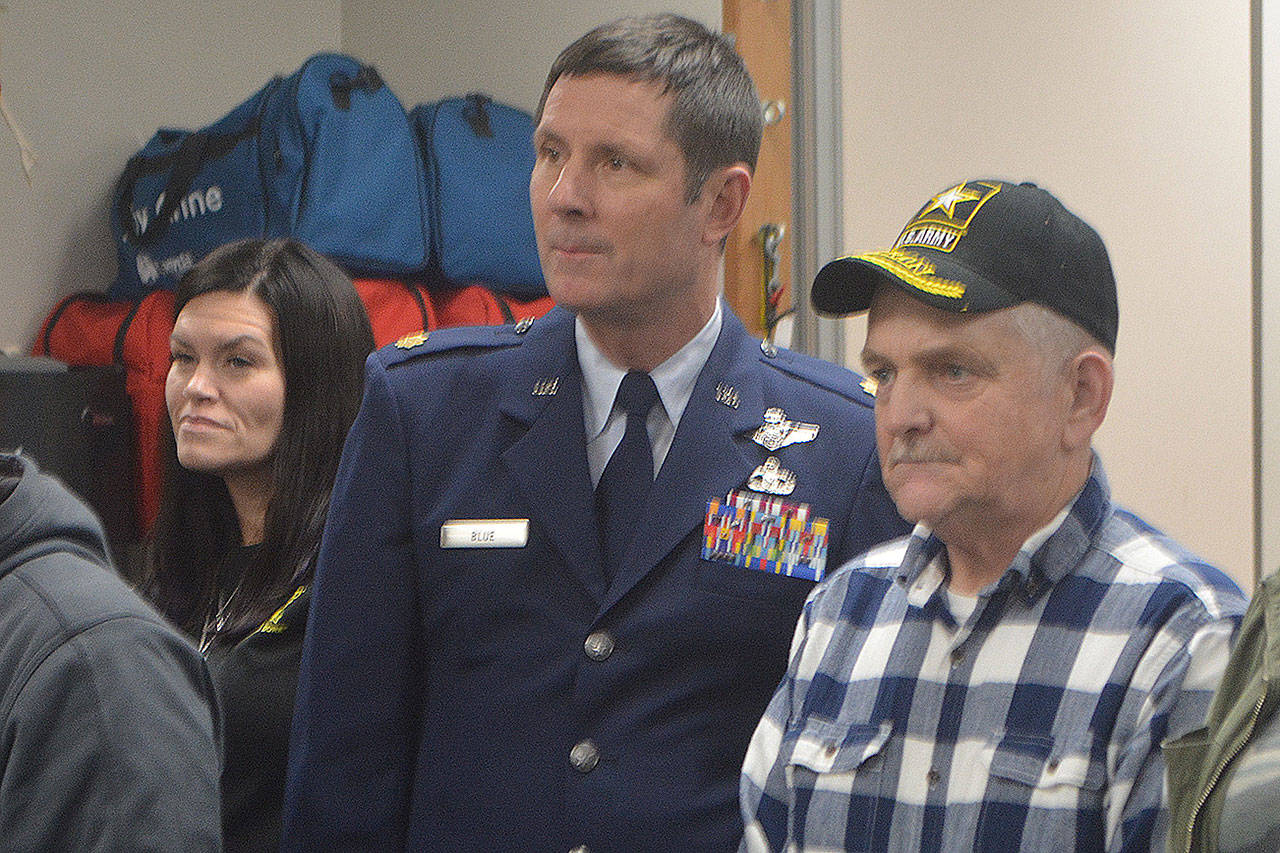MARYSVILLE – For Rebecca Kirkpatrick of Arlington, it’s not about being an openly gay pastor.
“It’s about Christian love and acceptance,” she said.
Kirkpatrick, 39, said she figured out that she was gay while on a class trip to Europe while attending Annie Wright High School in Tacoma, an all-girls private Episcopal school.
When she went to tell her mom, she told her she already knew. Telling her dad, a Republican mayor in Fort Collins, Colo., was not as easy.
“I wasn’t sure if I wanted to come out at the time,” she said. But her brother, who is five years younger, came out that he was gay, making it easier for her.
She admits living in Tacoma made it easier because it’s liberal like Seattle.
“My story is not filled with angst,” she said, adding most people have been accepting.
Kirkpatrick and her wife Cara live in Arlington. They were married at St. Matthews Cathedral in Seattle when the state legalized same-sex marriage.
They are part of the mass migration out of Seattle by the LGBTQ community, saying they can’t afford to live there anymore. They love their new home because it’s less busy, they can play outside and build a family.
“People are generally nicer up here,” Kirkpatrick said.
She said her church, St. Philips Episcopal in Marysville, is truly “celebratory of our relationship.”
Peggy James, who has been at the church for years, said there was no hesitation about hiring an openly gay pastor.
“It was the most natural thing for us,” James said after meeting Kirkpatrick, adding they appreciated how open she was and how she also listened. “She can relate to people.”
Kirkpatrick said the interview was online through Skype.
“We fell in love with them and took the job sight unseen,” she said.
James also said Kirkpatrick is a biblical scholar, which was a priority.
“She’s a positive asset to the Marysville community and beyond,” James said. Kirkpatrick agreed it was a great fit.
“They are genuine,” she said of the congregation, adding out of 100 Episcopal churches in Western Washington, St. Philip is “known as the kindest of them all.”
It wasn’t always that way in the church. When Kirkpatrick was attending college at Yale, she went to see Gene Robinson become the first openly gay Episcopal bishop in New Hampshire in 2003. There were protests. Ceremony attendees had to go through metal detectors. Robinson wore a bullet-proof vest. “He thought he would die that day,” Kirkpatrick said.
James said at St. Philips they were having their own struggles with the issue. She said 14 families left the church because they had a more fundamental view of the bible – that homosexuality was a sin.
“That’s fabricated,” James said. “We’re supposed to love our neighbors…” She credits former pastor Charlie Forbes from “saving us from leaving the church.” Forbes, who died recently at the age of 78, was pastor back in the 1970s, but returned in 2003. He preached that, “All are valued,” James said.
Kay Smith actually left the church in the 1980s because of an anti-gay message from the pastor then.
“We are all God’s people,” she said, adding she returned in 2012. “No where does it say ‘except’…”
Kirkpatrick said while she doesn’t feel discriminated against here, she also doesn’t feel fully supported like she did in Seattle.
“There are gay flags and rainbow stickers everywhere” there, she said. Kirkpatrick said those outward signs are important. She said people who have been marginalized historically, like LGBTQ, need those signs to show that they are included and loved. “It shows you’re not alone,” she said.
Kirkpatrick said that while she feels accepted in church, she’s not sure, for example, when she goes to a movie with Cara, if it’s OK to hold her hand.
Until the LGBTQ community feels that, “Gay lives fully matter,” it will continue to need to see rainbows, she said.
“I hope one day” that they won’t be needed, she added.
Kirkpatrick compared it to the Black Lives Matter movement. She said while she has seen support for Police Lives Matter, she hasn’t seen anything locally for BLM.
“Why can’t we value police and blacks at the same time?” she asked.
